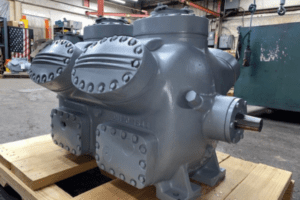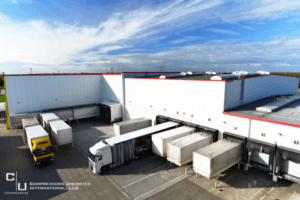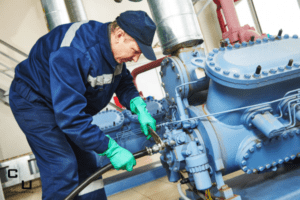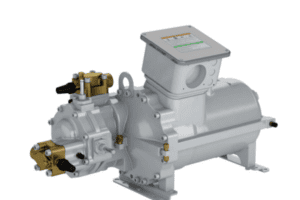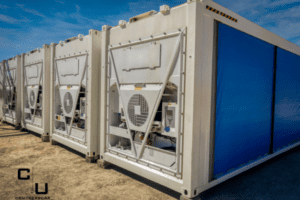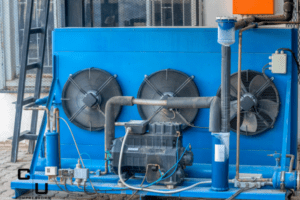Modern commercial compressors can be expected to operate reliably for anywhere from eight to ten years or more with regular maintenance. While compressors tend to see reduced efficiency in later years, they’re rarely the cause of failure in a commercial refrigeration or HVAC system.
There are exceptions, like when contaminants infiltrate the oil.
Contaminants in the oil can cause a wide variety of issues:
- Reduced capacity
- Corrosion and plating
- Component wear
- Diminished run time
Ultimately, contaminated oil can and will cause system failure and costly downtime. Damage can spread throughout the entire system, meaning you will have to replace more than the compressor itself when it is time to restore service. Luckily, you can protect your compressor against contaminants with appropriate care.
Let’s look at some key ways to mitigate against this major threat:
1. Perform Oil Analysis and Oil Change Promptly
Oil analysis should occur after 40 hours of run time on a new install or after any major repair. After the first 40-hour check, analysis and oil change can take place once a year. Document all oil changes to leave no more than 12 months between them.
2. Resolve Excessive Contamination
If a system is found to have excessive contamination, experts recommend using an evaporating solvent to flush out the compressor oil sump. You can purchase an evaporating solvent from Compressors Unlimited, your local HVAC/R parts store, or receive it as part of your purchase of an oil test kit.
3. Follow Up on Oil Analysis Results
It may take some time to receive your oil analysis results. Have someone on your maintenance team take point and follow up on the lab’s recommendation as soon as possible. Often, it is necessary to perform another oil change after analysis to clean up the entire system.
4. Take Precautions When Installing a New Commercial Compressor
If a commercial compressor fails, be sure to perform root cause analysis to understand how the fault happened. Just as a single electrical fault can cause damage to your brand-new compressor, so can the presence of excessive contamination in the remaining oil.
When you replace your compressor, carefully remove as much of the old lubricant from the system as possible. Otherwise, you risk the cycle starting over again – and a much shorter service life for the new compressor. Contaminated oil is one of the most common causes of early compressor failure.
5. Remember: One Oil Change May Not Be Enough
In some cases, it might take several oil changes to fully clean up the system. Repeated oil changes make human error more likely, so be careful to ensure the correct amounts of the correct lubricant are always being used. Remember that small leaks can cause oil to run out very quickly.
6. Make a Schedule to Sample and Change the Oil
Sampling your oil on a regular basis is an effective way to pre-empt contamination issues that might go undetected otherwise. While it’s usually unnecessary to change the oil more than once a year (see tip #1), you can sample your oil once a quarter or even as frequently as once a month if you suspect issues.
7. Have a Complete System Maintenance Plan
In any complex system, maintenance will be broken down into daily, weekly, monthly, quarterly, and annual tasks. The best way to verify nothing is ever overlooked is to thoroughly document the full maintenance plan. Be certain every member of your team notes tests, repairs, and replacements.
If Contaminated Oil Brings Down Your System, a Remanufactured Commercial Compressor Can Help
Contaminants may shave years off the lifespan of a compressor. That leaves you facing a big problem: Finding the time, money, and resources to replace it far ahead of schedule. Luckily, even a compressor core affected by contaminated oil can still be used in compressor remanufacturing.
A remanufactured commercial compressor goes through a complete engineering process so that it meets all applicable performance and environmental standards. This is crucial in both commercial and industrial systems, which rely on using the same make and model of compressor year in, and year out.
A reputable compressor remanufacturer will completely disassemble the compressor unit and scour it from top to bottom, inside and out. All components will be manually reviewed by qualified engineers. Damaged components are removed and replaced, with several tests occurring during the process.
When all repairs are complete, the reassembled unit is tested in a simulation of real world conditions. This proves it is ready to return for another decade or so of service – and order fulfillment can take days or weeks rather than the months you would wait with an OEM-affiliated wholesaler.
While a remanufactured compressor is much less costly than an all-new unit, it’s critical to make sure it is coming into an environment that is set up for success. Use these seven tips to avoid contamination.


